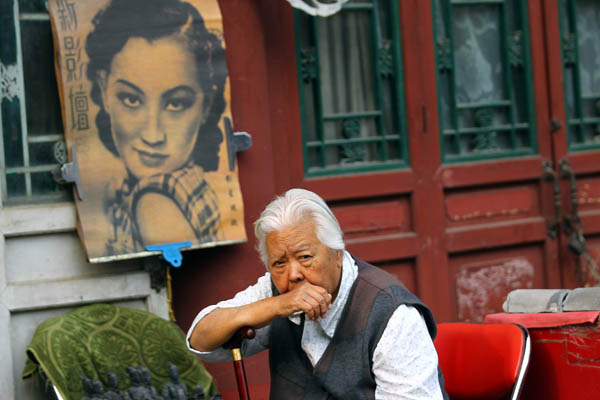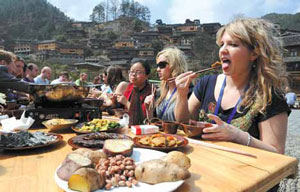Facing change
In the capital's historic Shichahai community, residents hope redevelopment plans won't destroy the hutong way of life.
For 80-year-old Ma Lingpeng and his 76-year-old wife Meng Zhaohui, living out the rest of their lives in comfort and happiness means living in their courtyard, walking around the nearby Shichahai lakes and watching their grandson growing up.
Behind a newly painted red door is their cozy, tidy courtyard home, which has two bedrooms, kitchen and bathroom, about 120 square meters.
 |
|
An elderly hutong resident at Shichahai takes a rest in the courtyard. Photos by Zou Hong / China Daily |
Located in Baimixiejie, a 200-meter-long, 5-meter-wide hutong (lane) of the Shichahai area, Ma's house is close to the Ping'an Avenue and the Lotus Market, a popular tour site on the west side of Houhai. His great-grandfather, who was a chef working for the imperial families, moved into the courtyard first and Ma's extended family has lived here for more than 200 years. Ma has three sons, who all got married and had children. His youngest son and his family live with the old couple.
"I was born and grew up here," he says, waving his bamboo fan. His face is creased with wrinkles around his eyes and mouth. "You see the trees outside our hutong? They were planted the day we got married in 1956."
Ma lives in what can be considered the old Beijing. Hidden among tall trees and gray walls, winding hutong and courtyards form the neighborhoods, where people go about everyday life. They buy daily supplies at closet-sized stores, build pigeon nests on the roofs, and visit neighbors without changing their pajamas.
|
Guizhou aims to be destination, not pit stop |


















